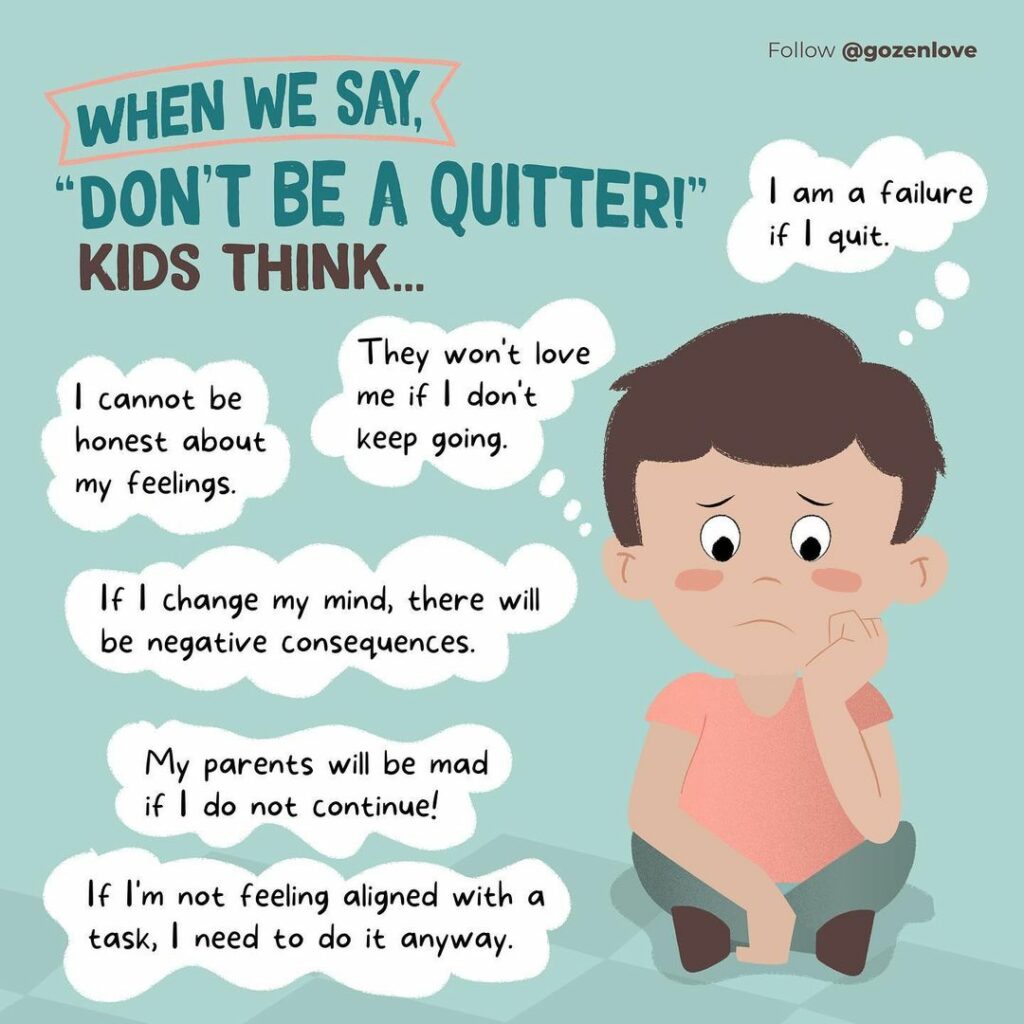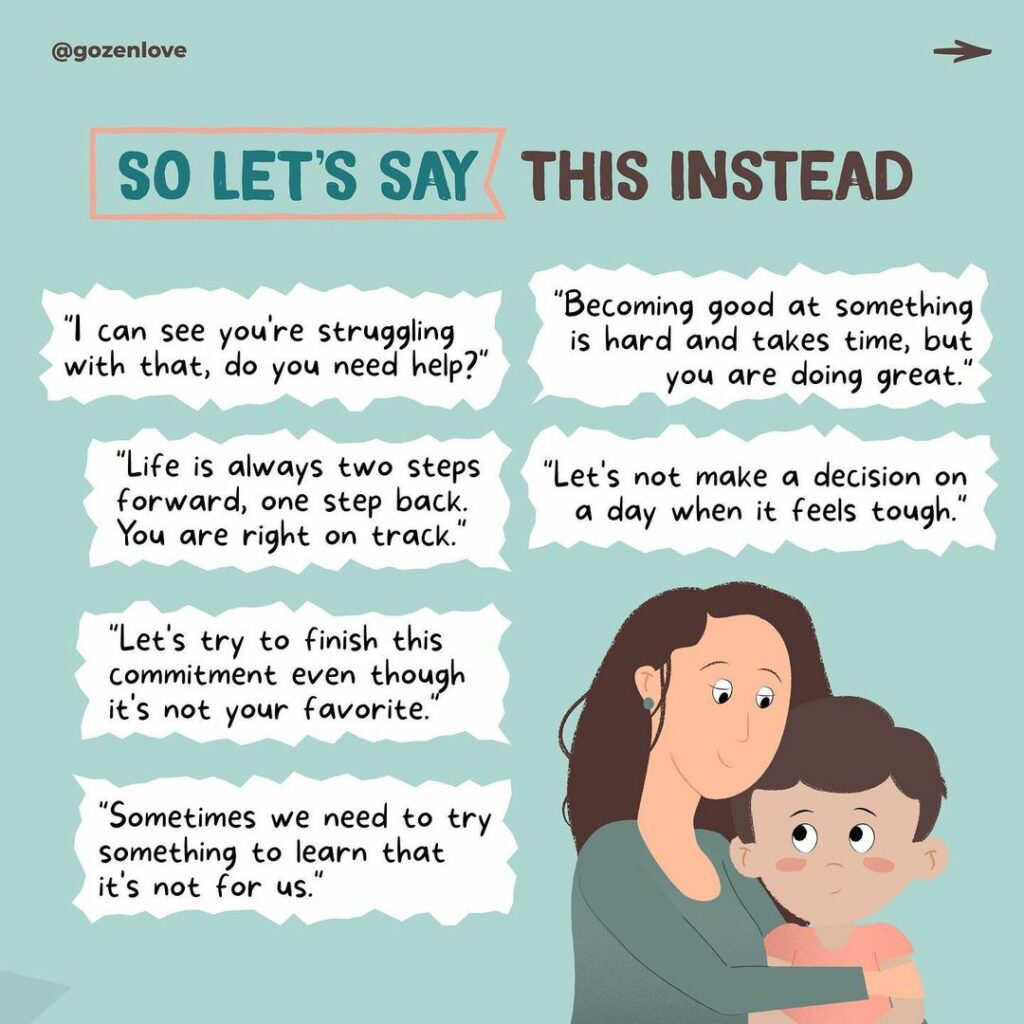Persistence. Grit. Self-motivation. All good things, right? Things we want our kids to have innately. And when they don’t show those qualities, when they want to give up on a new hobby, or project, or homework assignment, it’s tough to know the right thing to say. We rush to fix it! We hurry to stop them from running away! We need them to know giving up is not an option! Quickly we say “don’t be a quitter.” Oof.

Look, we’ve all been there, we’ve all said it, but needless to say, there are better ways to encourage kids than to suggest they’re “quitters” if they want to stop. Let’s instead remind them that it takes time to master new skills. Next time your child is ready to give up on something new, try one of these phrases to provide the encouragement they need to keep moving forward.
1. “I can see you’re struggling with that, do you need help?”
When your child is having a tough time with something, it’s important to remind them that it’s ok to reach out to someone and ask for assistance. Be sure you’re modeling this in your own life as well—when your child sees that you’re not afraid to ask for help, it’ll be easier for them to do the same.
2. “Becoming good at something is hard and takes time, but you are doing great.”
Small words of acknowledgment (they’re working hard) and encouragement (doing great) can help your child keep their eye on the prize as they work to master a new skill. This phrase reminds kids that no one expects them to be an expert on their first try, and it’s ok for it to take some time to figure out something new.
3. “Life is always two steps forward, one step back. You are right on track.”
Setbacks are a natural part of life. Helping your child learn a new skill is a perfect way to show that mistakes are a sign they’re doing something right. When your child makes a mistake while trying something new, make space for them to feel their frustration. Later, check-in and ask them what they learned from their setback.
4. “Let’s not make a decision on a day when it feels tough.”
Adults have all been there—wanting to give up on a friendship, job, or project on a tough day. Teaching your child to hold off and wait for intense feelings to subside before making an important decision is a skill that will serve them well long beyond their childhood years.
5. “Let’s try to finish this commitment even though it’s not your favorite.”
From soccer to debate team, it’s normal for kids to try a wide range of new activities—and want to give up when they realize that it’s not a good fit. Using your best judgment, encourage your child to stick to their commitment to perform in a band concert, finish out a sports season, or continue serving on a committee until the end of their term. Doing so will help them develop the stick-to-it-iveness necessary to succeed in the academic and professional worlds.
6. “Sometimes we need to try something to learn that it’s not for us.”
When your child is frustrated that an activity wasn’t as fun or engaging as they planned, it’s natural for them to feel disappointment (especially if it’s an activity that’s beloved by a friend or family member). Reassure your child that the important thing is that they tried something new—and, when they’re ready, talk to them about what activity or skill they’d like to work to master next.

The Bottom Line: When you’re encouraging your child to keep going, even when things get hard, you’re teaching them both the importance of perseverance and the importance of listening to their internal compass. Remember to model persistence in your day-to-day life as well—when kids see the people they love most working hard despite setbacks, they’re encouraged to do the same.
Want more help building the skills of persistence, grit, and resilience? Get the tools you need to address a spectrum of emotional challenges with a family subscription to GoZen! Anxiety Relief Programs.